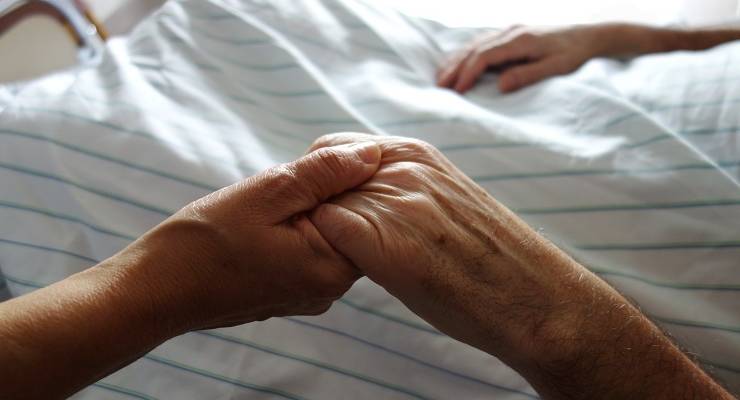
Bill* died yesterday, and I wasn’t there. He swallowed the barbiturates I’d prescribed for him and within four minutes was asleep, and dead shortly thereafter.
Very peaceful, his family and carer in attendance, exactly as he wanted.
But without his doctor.
I’m still self-isolating, having come back from the UK last week, and Bill is — was — a Voluntary Assisted Dying (VAD) patient of mine. Great guy; acerbic, prickly, very smart, very, very unwell and now not suffering any more.
He wouldn’t have minded getting COVID-19, but he did mind it keeping me away.
Bill used to make the trek to my surgery for our consultations, because we weren’t allowed talk on the phone about VAD.
This was because of an unexpected clash with a 2005 federal law that prohibits use of any “carriage service” to incite suicide. The VAD Board In Victoria took this to mean that any discussion of VAD could only take place face to face.
So anxious were they about this matter that they took the step of calling all us doctors who had completed the VAD training to make sure we knew this.
It was always ridiculous.
At the start, June 2019, there were few doctors trained to provide VAD care. Many of our VAD patients had trouble finding someone local to help. Oh, and guess what, they were unwell. As in terminally unwell.
I had a man contact me from rural Victoria. Did I say to him, “sorry about the spinal tumour, the wheelchair, the pain, get in your car and drive to Melbourne so we can chat?”
That’s what the law said I was meant to tell him…
Now we are told to practice social distancing and for doctors to use telehealth where possible, and some of us have to self-isolate.
So yesterday I had a long talk with a new patient. She has Huntington’s disease, a hideous, progressive neurological disorder that has no treatment, and she wanted to know if I could help. Today I spoke to Bill’s carer before and after his death. Tomorrow there will be others, and no way am I going to tell them sorry, I’m stuck at home, can’t help.
The 2005 law was an amendment of the 1995 Act. It was well intentioned, designed to stop teenagers telling their mates to go kill themselves, by phone, text or internet (no one has ever been prosecuted for this). It was never intended to be about VAD.
In my view, it’s irrelevant anyway. VAD is a rational choice about how to die, by someone who is near an inevitable death. It’s completely different from suicide, so the law doesn’t apply.
Now that we’re forced to use telehealth, even the lawyers might come round and tell us it’s OK to use a “carriage service” to help people seeking VAD.
COVID-19 has changed everything. This might be one change that’s for the better.
*Not his real name, not that I suspect he would mind, but I didn’t ask
Nick Carr is a Melbourne-based GP, author and broadcaster.







Agree totally. What about the plight those who have signed a VAD ( called in my State an Advanced Health Directive ) and who cannot speak due to a massive stroke and dementia?
What of my human rights that I sign when in good health stating that I do not want my life preserved when there is no quality, no recognition of family, nor ability to move from a virtual prison bed?
This is not even counting the extra demand on health resources , bed space and unnecessary drugs.
There is even a short period (not in these exceptional Coivid – 19 isolation times) when after a massive stroke , a patient’s family could gather to let those with VAD or ADH die with the dignity they signed for.
it wasn’t the VAD Board who advised care in not falling foul of the federal legislation. It was the DHSS, after taking legal advice and asking the attorney general about his attitude to a possible prosecution. He did not categorically rule that out.
Dying with Dignity. Yes, completely different from suicide and, for that matter, euthanasia.